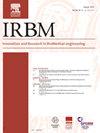Unlocking Cognitive Potential: Exploring a Virtual Environment for Cognitive Training in Healthy Aging and Mild Cognitive Impairment
IF 5.6
4区 医学
Q1 ENGINEERING, BIOMEDICAL
引用次数: 0
Abstract
Objective
This study aims to investigate how cognitive impairment and social presence influence goal attainment in an ecological virtual environment. It also examines the role of interactive features in improving computer-assisted cognitive training for older adults, both with and without mild cognitive impairment (MCI).
Materials and Methods
A virtual supermarket was used to simulate a realistic exploration task, incorporating social interactions and adaptive assistance strategies. Error analysis was conducted to identify performance patterns linked to cognitive profiles.
Results
Participants with MCI exhibited a significantly higher frequency of wandering and uncorrected orientation errors, compared to cognitively healthy older adults. While verbal support was beneficial in facilitating virtual task progress, it did not fully mitigate performance deficits in those with MCI. Additionally, all older participants, regardless of cognitive status, reported significantly lower perceptions of social presence compared to younger participants.
Conclusion
Virtual environments constitute a promising tool for the assessment and enhancement of functional abilities in older adults with neurocognitive impairments. The integration of tailored cognitive training protocols and adaptive support strategies holds potential to optimize cognitive stimulation and task performance.

释放认知潜能:探索健康老年和轻度认知障碍认知训练的虚拟环境
目的探讨虚拟生态环境中认知障碍和社会存在对目标实现的影响。它还研究了互动功能在改善老年人计算机辅助认知训练方面的作用,包括有和没有轻度认知障碍(MCI)的老年人。材料与方法利用虚拟超市模拟现实探索任务,结合社会互动和适应性援助策略。错误分析是为了确定与认知概况相关的表现模式。结果与认知健康的老年人相比,MCI患者表现出更高频率的徘徊和未纠正的方向错误。虽然口头支持有助于促进虚拟任务的进展,但它并不能完全缓解轻度认知障碍患者的表现缺陷。此外,与年轻参与者相比,所有年龄较大的参与者,无论认知状况如何,都报告了明显较低的社会存在感。结论虚拟环境是评估和增强老年神经认知障碍患者功能能力的有效工具。整合定制的认知训练协议和适应性支持策略具有优化认知刺激和任务表现的潜力。
本文章由计算机程序翻译,如有差异,请以英文原文为准。
求助全文
约1分钟内获得全文
求助全文
来源期刊

Irbm
ENGINEERING, BIOMEDICAL-
CiteScore
10.30
自引率
4.20%
发文量
81
审稿时长
57 days
期刊介绍:
IRBM is the journal of the AGBM (Alliance for engineering in Biology an Medicine / Alliance pour le génie biologique et médical) and the SFGBM (BioMedical Engineering French Society / Société française de génie biologique médical) and the AFIB (French Association of Biomedical Engineers / Association française des ingénieurs biomédicaux).
As a vehicle of information and knowledge in the field of biomedical technologies, IRBM is devoted to fundamental as well as clinical research. Biomedical engineering and use of new technologies are the cornerstones of IRBM, providing authors and users with the latest information. Its six issues per year propose reviews (state-of-the-art and current knowledge), original articles directed at fundamental research and articles focusing on biomedical engineering. All articles are submitted to peer reviewers acting as guarantors for IRBM''s scientific and medical content. The field covered by IRBM includes all the discipline of Biomedical engineering. Thereby, the type of papers published include those that cover the technological and methodological development in:
-Physiological and Biological Signal processing (EEG, MEG, ECG…)-
Medical Image processing-
Biomechanics-
Biomaterials-
Medical Physics-
Biophysics-
Physiological and Biological Sensors-
Information technologies in healthcare-
Disability research-
Computational physiology-
…
 求助内容:
求助内容: 应助结果提醒方式:
应助结果提醒方式:


